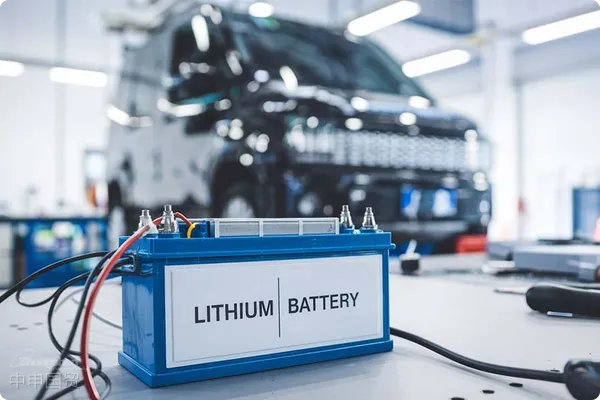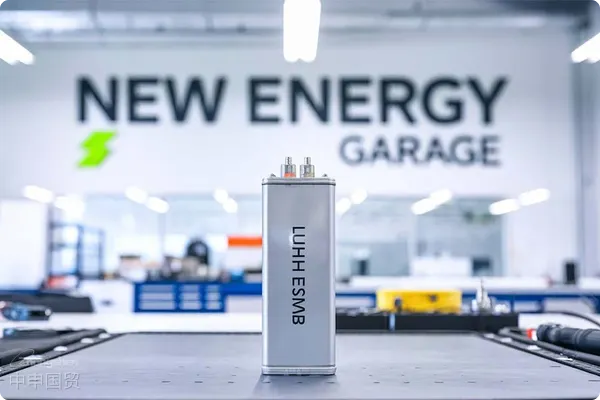- Shanghai Zhongshen International Trade Co., Ltd. - Two decades of trade agency expertise.
- Service Hotline: 139 1787 2118

We focus on helping you carry out successful international trade activities under complex, cumbersome, and strictly regulated restrictions - especially for various types, sizes, and special - nature (hazardous) commodities. We make the best decisions on all process steps and legal compliance required for the affairs and follow up throughout the process until the transaction is successfully completed without any worries! We are committed to providing the highest - quality, efficient, and cost - effective solutions! Trustworthy!import and exportWith the growing global demand for clean energy, lithium - ion batteries, as an important energy - storage device, have seen an expanding market demand year by year. According to data from market research institutions, it is expected that by 2025, the global lithium - ion battery market size will reach hundreds of billions of dollars. Against this backdrop, more and more enterprises are getting involved in the export business of lithium - ion battery products.
Lithium - Ion Battery Products
It means that an enterprise entrusts the export business of lithium - ion battery products to a professional agency company, and the agency company is responsible for handling a series of businesses such as export procedures, logistics transportation, customs declaration, and inspection. Choosing a suitable export agency company can help enterprises save time and costs, improve export efficiency, and reduce risks.Export RepresentationI. Operational Process of Export Agency for Lithium - Ion Battery Products
: The enterprise signs an agency contract with the export agency company, clarifying the rights and obligations of both parties, including agency fees, service content, liability for breach of contract, etc.
1. Sign an Agency ContractExample: An enterprise signs a contract with an export agency company, stipulating that the agency company is responsible for handling export procedures, logistics transportation, customs declaration, and inspection, etc., and the agency fee is 1% of the total value of the exported goods.
2. : The enterprise prepares export goods in accordance with the contract requirements, including packaging, labeling, quality inspection, etc.: The enterprise prepares the export goods in accordance with the contract requirements, including the packaging, labeling, quality inspection, etc. of the goods.
3. Handling Export Formalities: The export agency handles the export procedures according to the goods information provided by the enterprise, including applying for an export license, handling customs declaration and inspection, and paying tariffs, etc.
4. Arrange logistics transportation: The export agency arranges logistics transportation according to the requirements of the enterprise, including selecting an appropriate mode of transportation, a transportation company, and a transportation route, etc.
5. Track the Goods TransportationSpecific elaboration level: Tracking the transportation situation of the goods allows the enterprise to timely understand the transportation progress and status of the goods, so as to take timely measures to deal with possible problems.
6. : After the goods arrive at the destination, the export agency assists the enterprise in handling the goods delivery procedures, including contacting the consignee, arranging the unloading of the goods, and inspecting the goods, etc.Specific elaboration level: Goods delivery is the last link of the export business. Handling the goods delivery procedures can ensure that the goods are smoothly delivered to the consignee and the export business is completed.
: Different countries and regions have different policy and regulatory requirements for the export of lithium - ion battery products. Enterprises and export agencies should understand the relevant policies and regulations to ensure that the export business meets the requirements.
1. Understand Relevant Policies and RegulationsExample: An enterprise plans to export a batch of lithium - ion batteries to the United States. The export agency learns that the United States has strict safety standard requirements for the import of lithium - ion batteries. Therefore, it suggests that the enterprise conduct safety testing on the lithium - ion batteries and apply for relevant certifications to ensure that the goods meet the import requirements of the United States.
2. : Lithium - ion battery products are dangerous goods, and safety needs to be paid attention to during the transportation process. Enterprises and export agencies should select an appropriate mode of transportation, such as sea transportation, according to the nature and quantity of the goods.Specific elaboration level: Sea transportation is a commonly used mode of transportation for the export of lithium - ion battery products. However, the transportation time of sea transportation is relatively long, and natural disasters such as storms may be encountered during the transportation process, affecting the safety of the goods. Air transportation has a shorter transportation time, but the transportation cost is higher. Road transportation is suitable for short - distance transportation, but safety also needs to be paid attention to during the transportation process.Air Transportation, land transportation, etc.
3. : The packaging and marking of lithium - ion battery products should meet international transportation standards and relevant regulatory requirements to ensure that no leakage, explosion, or other dangers occur during the transportation process.Specific elaboration level: The goods packaging should use packaging materials that meet international transportation standards, such as cartons, wooden boxes, etc., and indicate information such as the name, quantity, weight, and production date of the goods on the packaging. The markings should be clear and definite, including dangerous goods markings, transportation markings, etc.
4. : The quality of lithium - ion battery products is the key to the export business. Enterprises should ensure that the quality of the goods meets relevant standards and requirements to avoid returns or claims due to quality problems.: The quality of lithium - battery products is the key to the export business. The enterprise should ensure that the quality of the goods meets the relevant standards and requirements to avoid returns or claims due to quality problems.
5. Pay attention to tariffs and fees: Export business involves the payment of tariffs and other fees. Enterprises and export agency companies should understand relevant tariff policies and fee standards to avoid cost increases due to tariff and fee issues.
6. Establish a risk management mechanism: There are certain risks in export business, such as market risk, credit risk, exchange rate risk, etc. Enterprises and export agency companies should establish a risk management mechanism to identify and respond to risks in a timely manner.
III. Key points of the export agency contract for lithium - battery products
1. Basic information of both parties to the contract: Including information such as the enterprise name, address, contact information, legal representative, etc., as well as the name, address, contact information, legal representative, etc. of the export agency company.
2. Service content and fees: Clearly define the service content and fee standards of the export agency company, including agency fees, transportation fees, customs declaration and inspection fees, etc.
3. Rights and obligations: Clearly define the rights and obligations of both parties, including the rights and obligations of the enterprise and the rights and obligations of the export agency company.
4. Liability for Breach of Contract: Clearly define the liability for breach of contract of both parties, including the circumstances of breach of contract, the way of bearing liability for breach of contract, etc.
5. Dispute resolution method: Clearly define the dispute resolution method when disputes occur during the performance of the contract by both parties, including negotiation, arbitration, litigation, etc.
6. Entry into force and termination of the contractDefine the effective conditions and termination conditions of the contract, including the contract signing date, effective date, termination date, etc.
In conclusion, the export agency of lithium - battery products is a complex business that requires close cooperation between enterprises and export agency companies to complete. When choosing an export agency company, an enterprise should select an agency company with good reputation and strong professional ability, and sign a detailed agency contract to clarify the rights and obligations of both parties. During the export business process, enterprises and export agency companies should pay attention to relevant policies and regulations, packaging and labeling of goods, product quality, tariffs and fees, etc., establish a risk management mechanism, identify and respond to risks in a timely manner to ensure the smooth progress of the export business.
Related Recommendations
Category case
Contact Us
Email: service@sh-zhongshen.com
Related Recommendations
Contact via WeChat

? 2025. All Rights Reserved. 滬ICP備2023007705號(hào)-2  PSB Record: Shanghai No.31011502009912
PSB Record: Shanghai No.31011502009912








